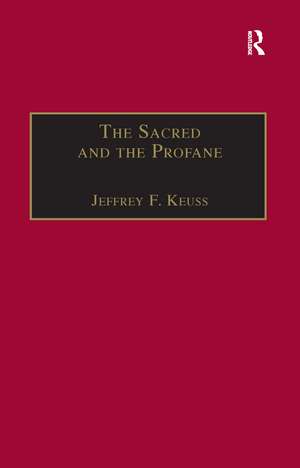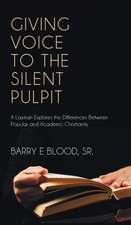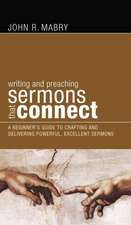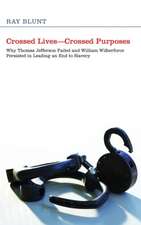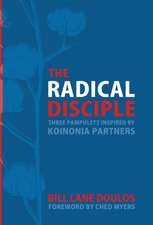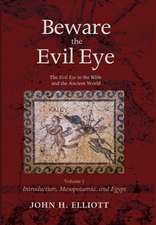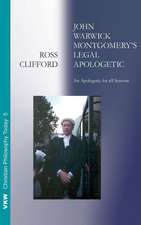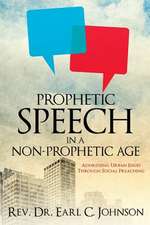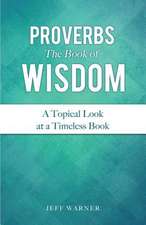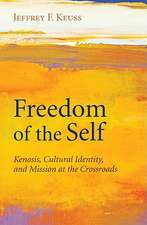The Sacred and the Profane: Contemporary Demands on Hermeneutics
Editat de Jeffrey F. Keussen Limba Engleză Paperback – 11 noi 2016
| Toate formatele și edițiile | Preț | Express |
|---|---|---|
| Paperback (1) | 324.16 lei 43-57 zile | |
| Taylor & Francis – 11 noi 2016 | 324.16 lei 43-57 zile | |
| Hardback (1) | 762.16 lei 43-57 zile | |
| Taylor & Francis – 28 apr 2003 | 762.16 lei 43-57 zile |
Preț: 324.16 lei
Preț vechi: 416.92 lei
-22% Nou
Puncte Express: 486
Preț estimativ în valută:
62.03€ • 64.40$ • 51.73£
62.03€ • 64.40$ • 51.73£
Carte tipărită la comandă
Livrare economică 24 martie-07 aprilie
Preluare comenzi: 021 569.72.76
Specificații
ISBN-13: 9781138256583
ISBN-10: 1138256587
Pagini: 144
Dimensiuni: 156 x 234 mm
Greutate: 0.45 kg
Ediția:1
Editura: Taylor & Francis
Colecția Routledge
Locul publicării:Oxford, United Kingdom
ISBN-10: 1138256587
Pagini: 144
Dimensiuni: 156 x 234 mm
Greutate: 0.45 kg
Ediția:1
Editura: Taylor & Francis
Colecția Routledge
Locul publicării:Oxford, United Kingdom
Cuprins
Contents: Introduction: The sacred and the profane in hermenuetics after Kant, Jeffrey F. Keuss; Ethics within the limits of post-Ricœurian Kantian hermeneutics: autonomy and vulnerability, Pamela Sue Anderson; Kant and radical evil: eine Rettung des Teufels?, John K. Riches; On the relation of Kant's aesthetics to his practical work, Patrick McCauley; The hermeneutics of Hamann: 'Condescensio' and 'Irony', Denis Thouard; David Friedrich Strauss and Mythi in Das Leben Jesu, Jeffrey F. Keuss; Schleiermacher's hermeneutic: the sacred and the profane, David E. Klemm; Depth hermeneutic and the literary work of art: religious tradition, hermeneutic theory, and nihilism, David E. Klemm; Myth and Kerygma: Northrop Frye's Critique of Bultmann, Tibor Fabiny; Ricœur: thinking biblically or 'penser la Bible'?. Jacques Sys; Ethics, hermeneutics and politics: a critical standpoint on memory, Pamela Sue Anderson; Index.
Recenzii
’Presents a very important statement about hermeneutics. There are major international figures writing here as well as some very bright younger scholars’ David Jasper, University of Glasgow, UK ’A fine collection on a very interesting subject. This kind of re-appraisal of the position of Kant in hermeneutics is central to much that is going on nowadays. There is a lot here for the biblical and theological community.’ Craig Bartholomew, Cheltenham and Gloucester College, UK
Descriere
Hermeneutics continues to be an area of interest to many, yet recent discussions in hermeneutic theory have turned toward fringe areas - whether found in realms of post-structuralism or radical orthodoxy - that have resulted in a 'forgetfulness' of one of hermeneutics' key thinkers, Immanuel Kant. This book seeks to reaffirm Kant's place as a central thinker for hermeneutics and to challenge and support prevailing criticisms. It has been argued that Kant merely offers a theory of the subjective universality of a rational aesthetic judgement where only reason connects us to the transcendent and sensation is only a subjective and confusing factor that distracts and distorts reason. This position is challenged as well as supported by the contributors to this book, scholars who bring key issues in hermeneutics to light from American, British, and Continental perspectives, grounded in questions and concerns germane to today's culture. The discussion of hermeneutics is framed as being deliberately an interdisciplinary, cross-cultural affair. The Sacred and the Profane provides a welcome addition to contemporary discussions on hermeneutic theory through its assertion that there is still a need to support a critical approach to hermeneutics after Kant.
